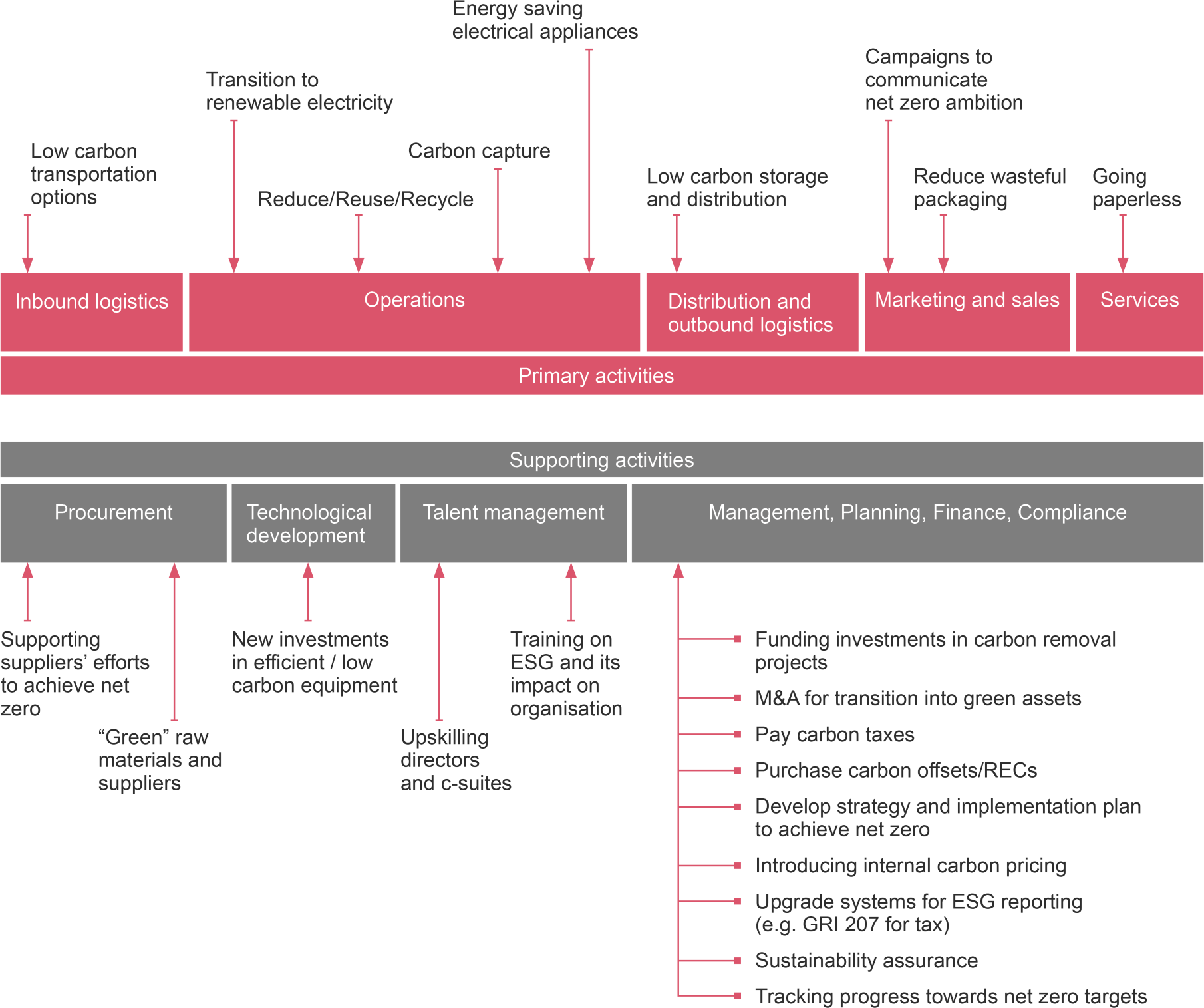The Minister reiterated Singapore’s strong commitment towards tackling climate change and has raised our ambition of achieving net zero by or around 2050, earlier than previously committed. Against the backdrop of Singapore’s inherent limitations in decarbonisation, this is made possible by the Government’s close monitoring of science and technology developments, and the shift in mindsets globally towards ensuring a sustainable future.
Singapore Budget 2022 commentary - Singapore strengthens
The Minister reiterated Singapore’s strong commitment towards tackling climate change and has raised our ambition of achieving net zero by or around 2050, earlier than previously committed. Against the backdrop of Singapore’s inherent limitations in decarbonisation, this is made possible by the Government’s close
Carbon tax to increase to highest level in Asia
The Minister proposed increasing the carbon tax rate to:
- $25 per tCO2e of emissions for 2024 and 2025
- $45 per tCO2e of emissions for 2026 and 2027
- $50 to $80 per tCO2e of emissions by 2030
This increase is fast and furious and speaks volumes about Singapore’s resolve to meet its elevated ambition of reaching net zero by or around 2050. It sends a strong signal to companies that it is no longer a choice but an imperative to start reducing carbon emissions.
Singapore first implemented the carbon tax on 1 January 2019. It is currently applicable on facilities that directly emit at least 25,000 tCO2e of greenhouse gas (GHG) emissions 1 annually. This covers about 80% of total GHG emissions in Singapore from about 50 facilities primarily in the manufacturing, power, waste, and water sectors. The carbon tax is imposed through a fixed-price credits-based mechanism - this means taxable facilities will have to pay the tax by purchasing credits issued by the National Environment Agency and surrendering the number of carbon credits corresponding to their emissions.
This Budget announcement is no surprise as the current carbon tax rate of $5 per tCO2e of emissions is noticeably low by international standards. At $25 per tCO2e of emissions, Singapore will have the highest carbon tax rate in Asia. At $50 to $80 per tCO2e of emissions, Singapore’s carbon tax rates will be comparable with those of Ireland, Finland and the EU Emissions Trading System, based on current carbon prices.
Interestingly, the International Monetary Fund, in its International Carbon Price Floor framework, proposes US$50 per tCO2e of emissions for middle-income countries like Singapore by 2030. A report by PwC and the World Economic Forum concluded that this could make a significant contribution to tackling global warming by accelerating emissions reduction without severe economic damage to livelihoods and businesses.
If Singapore does not increase its carbon tax rate, companies could still end up paying such taxes in other countries. For example, under the proposed EU carbon border adjustment mechanism, in simplified terms, Singapore companies exporting certain products to the EU would have to pay a “top-up” carbon price for the difference between the Singapore and EU carbon prices.

Singapore’s approach is bold but calibrated. No changes were made to the annual emissions threshold of 25,000 tCO2e per year, which means that the carbon tax should continue to affect only major emitters. The carbon tax increases are steep and take place over a relatively short period of time, hence a transition framework will be introduced to support affected emissions-intensive trade-exposed (EITE) companies 2 which may otherwise find it challenging to adapt in the near term. Such companies are given transitional allowances to help reduce their initial carbon tax costs and may surrender high-quality international carbon credits to offset up to 5% of their taxable emissions from 2024. This provides flexibility for hard-to-abate sectors, while maintaining the incentive to decarbonise. It is helpful for companies that are able to source for credible carbon credits in a cost-effective manner. This is in line with the Government’s efforts to develop an international carbon trading marketplace and a services ecosystem to support decarbonisation.
A higher carbon tax is expected to increase gas and electricity expenses for businesses and households. To help manage the impact on households, the Government will provide support such as additional U-Save rebates (details to be announced).
There is often debate around the quality of credits in the voluntary carbon market and it remains to be seen how “high-quality international carbon credits” will be defined for the purpose of the transition framework.
Meanwhile, the Government does not expect to derive additional revenues from the increase in carbon tax rates. Instead, the revenue will be used to support decarbonisation efforts and cushion the impact on businesses and households.
The cost of going green
Aside from the steep increase in carbon tax costs, “going green” often also entails costly investment in low carbon technologies, employee training and upskilling and other compliance costs, and companies have to budget for these costs.
Budgeting for Going Green

To defray some of these costs of their low carbon transition, companies should explore both fiscal and non-tax incentives offered by the Government. Examples include:
- Writing down allowances for acquisition of intellectual property rights for green-related technology
- Enhanced tax deductions for research and development in greener or low-carbon technologies
- Withholding tax exemption/reduction on financing for green projects that promote or enhance the economic or technological development of Singapore
- Resource Efficiency Grant for Energy and the Energy Efficiency Fund
- Enterprise Development Grant for development of core capabilities, innovation and productivity
- Green finance, including possible incentives such as the Sustainable Bond Grant Scheme
Going green is not cheap. But climate change is an existential threat that will negatively impact human beings and all other forms of life on Earth. Therefore, immediate action is imperative. It is a problem that can only be solved by the joint efforts of governments, businesses and people.
Singapore firing on all cylinders
Singapore’s net zero ambition not only requires fiscal policies such as carbon tax to influence behaviours, but enablers such as green finance to facilitate investments in new technologies such as carbon capture, hydrogen, energy-efficient technology and other solutions.
1 GHGs covered include: carbon dioxide, methane, nitrous oxide, hydrofluorocarbons, perfluorocarbons and sulphur hexafloride. Singapore will also start reporting a seventh GHG, nitrogen trifluoride, by 2024.
2 Examples of EITE sectors include Chemicals, Electronics and Biomedical Manufacturing sectors. Companies in these sectors typically employ a substantial number of Singaporeans. Examples of non-EITE sectors include domestic-oriented sectors like power generation and waste management.







Related content
Singapore Budget 2022 commentary
View our Singapore Budget 2022 Commentary for practical insights and action points for businesses to rethink, reimagine and transform now.
Singapore Budget 2022
Active economy. Beautiful environment. Caring society. Keep up to date on how businesses can navigate this year's Budget measures.
Singapore Budget 2022 webcast
Watch our webcast (now available on-demand) as we break down the new measures and share insights on what this year’s Budget means for you and your business.